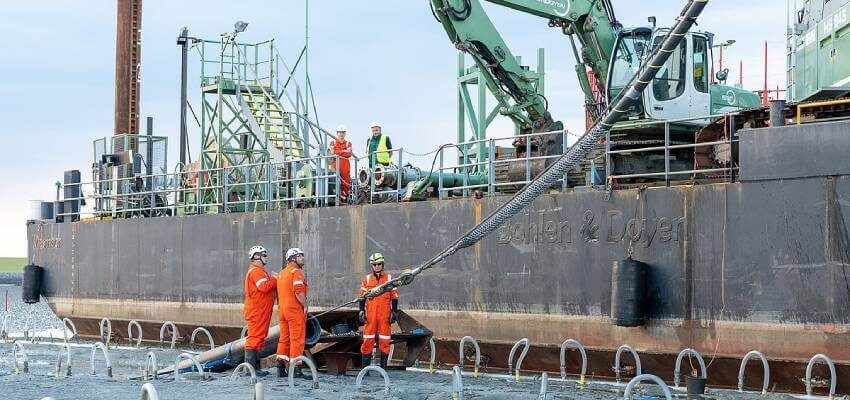Merkel supports European power grid integration at NordLink launch
Norway, Agder: Germany is taking another step towards achieving a fully renewable power system by completing the first electric cable connection with Norway.

Image source: Clean Energy Wire
Norway, Agder: Germany is taking another step towards achieving a fully renewable power system by completing the first electric cable connection with Norway.
The green transformation cannot be achieved by countries on their own, chancellor Angela Merkel said at the official launch event of NordLink. Integrating different energy sources in different countries, e.g., wind power in northern Germany with hydropower in Norway, is helping to ensure a secure power supply and stabilise energy prices, Merkel said. Energy minister Peter Altmaier said that the result is a win-win situation for both countries and consumers, as the energy transition would get cheaper the better European countries are interconnected.
After five years of construction time, NordLink, which is the world’s longest subsea electrical interconnector, started operations in April 2021 (read more). It has a capacity of 1.4 GW and allows the transfer of excess renewable electricity to Norwegian pumped hydropower stations while at times of low wind power production in Germany, Norwegian dams can feed power back into the German grid.
Germany – like the Scandinavian countries – is maintaining a very high level of power supply security with only around 13 minutes of power cuts experienced by consumers per year, energy minister Altmaier stressed. To ensure that it stays this way despite the phase-out of nuclear and coal power and the concentration of wind power production in the north of the country, new north-south power “highways” are needed. As long as the majority of these lines is not completed, keeping Germany’s power grid stable requires costly interventions by transmission grid operators, so called feed-in management and redispatch measures. NordLink has the potential to reduce these interventions as it gives northern Germany the opportunity to export wind power when input is high (and prices low) and power lines to the south are congested.
The consortium operating NordLink is a 50-50 venture between Statnett and DC Nordseekabel GmbH & Co.KG, a company equally owned by TenneT and KfW. The project’s total costs are estimated to range between $2.07 B and $2.2 B (€1.7 B and €1.8 B).
Source: Clean Energy Wire




